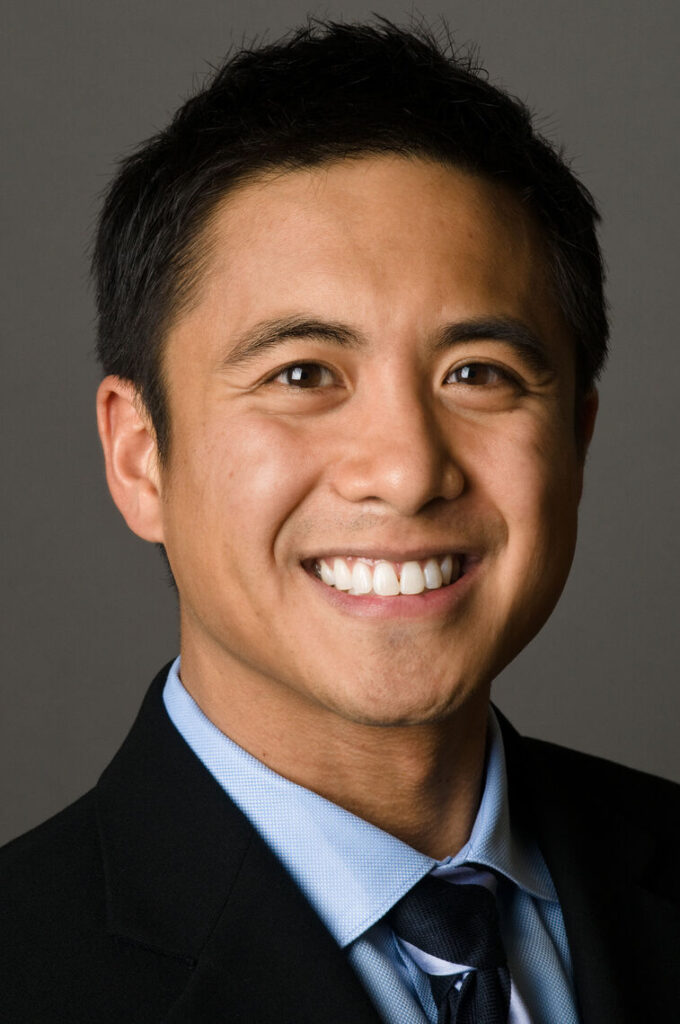- Fellow Highlights
Jonah Lalas: How I’m Shaping Culture
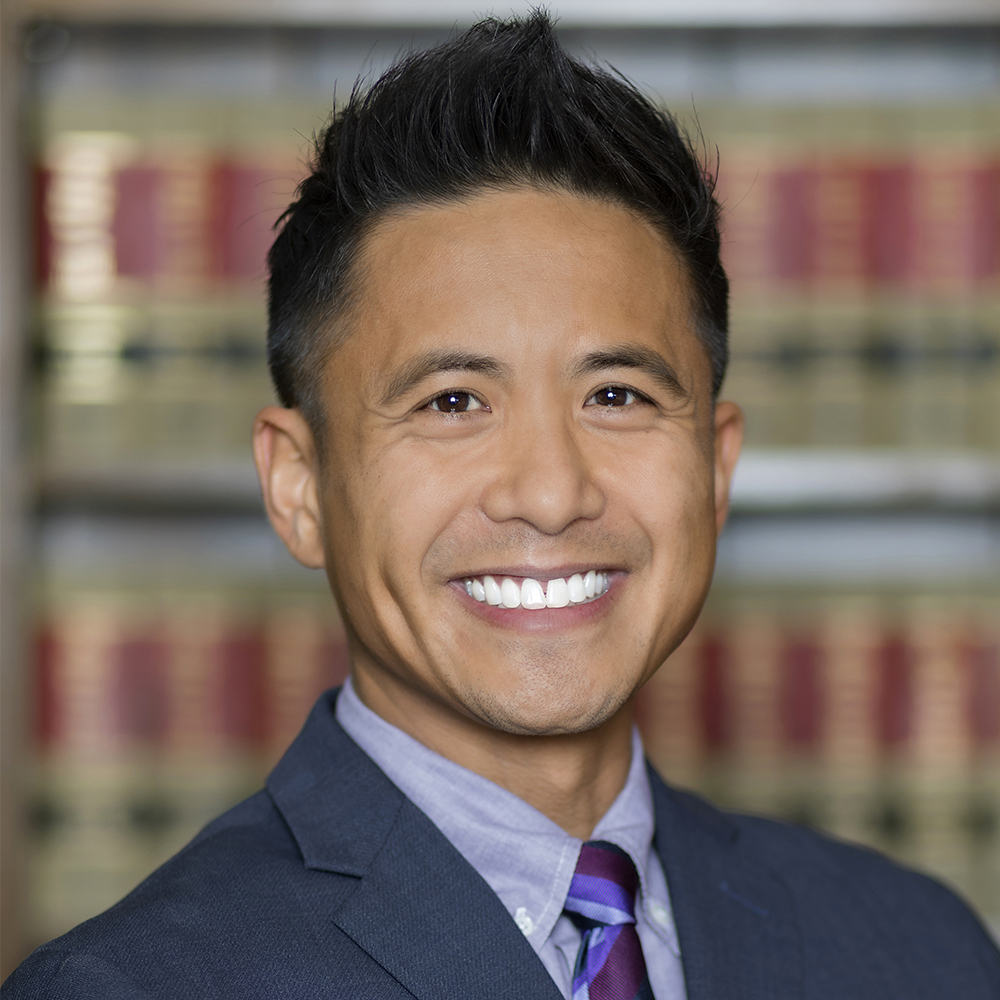
Going from union organizer to law school, 2010 Paul & Daisy Soros Fellow Jonah Lalas is now a Los Angeles-based lawyer who currently practices at Rothner, Segall & Greenstone where he represents workers and public and private sector unions in state and federal courts.
After graduating from UCLA, Jonah, the child of Filipino immigrants, joined the Service Employees International Union in Los Angeles and then moved to Texas where, as organizing director, he led an effort to organize 13,000 city employees in Houston, which resulted in a historic first contract that included improved wages and benefits and established a $10/hour minimum wage. He graduated from the University of California, Berkeley School of Law in 2012 and went on to work as an attorney representing whistle blowers on a two-year fellowship with Phillips & Cohen LLP and then did three federal clerkships before joining his current law firm.
We asked Jonah about how he is shaping culture through his work on worker’s rights and unions:
What types of worker’s rights cases do you like working on most?
At its core, a union is an organization that workers form so they can keep the things they like about their job and change the things they don’t like. The idea is that you can accomplish more as group at work than you can as an individual—there is power in numbers. I like cases that involve groups of workers who are either seeking to organize a union for the first time, or already have a union and are seeking to assert rights they have under the law or their union contract. It may come as a surprise to some people, but even with a union, I have worked on so many cases where you see management go to great lengths to avoid their contractual obligations. It is inspiring to see workers come together to fight for respect they are owed.
Is there a worker’s rights case that you’ve worked on recently that’s been important to you or is a good example of your work?
I recently worked on a case involving a union construction worker who the employer terminated because he supposedly damaged a crane. This guy had a clean work record and he seemed good at his job. I dug in. This case introduced me to the world of cranes, how they worked, and all of their various components and terminology. (I often have to learn all of the ins and outs of a trade to build the best case.) After immersing myself in the facts, I learned that the employer conducted a shoddy investigation full of conclusory assertions unsupported by evidence, which I later exposed through cross examination of one of the managers. The crane operator got his job back and the union used his case as an organizing tool. I don’t know that these kinds of discharge cases count as “social change.” But I know that my work has helped save people’s jobs, and that means something to me.
If you had a magic wand, what law or policy change would you make in the United States?
The key word is “magic.” The default in this country is that employers are nonunion, and workers have to organize to form a union. My magic spell would turn the default on its head: all workers would have a union but could have the option to get rid of (i.e., decertify) the union. Everyone deserves a voice at work and a union serves as a vehicle for that. Work is the place where we spend most of our time; often, we spend more time at work than with our families. How can we expect to have social or political democracy if we don’t have democracy at the place where we spend most of our waking life? Corporations are organized and have myriad ways of effectively advocating for monied interests. The labor movement is a counter to that. Unions are the reason why we have things like the weekend or a minimum wage. Factory employers long ago didn’t just wake up one morning and say, “Sure, let’s give people two days off.” No. Working people fought, struggled, and died for that. With more people in unions, I believe we can achieve things like a living wage and paid family leave.
How did you first become interested in worker’s rights?
I took an Art and Social Change class during my junior year at UCLA with an activist professor named Paul Von Blum. We spent a portion of the class studying works by artists who wanted to say something about the injustices faced by striking janitors, garment workers, and others. Through art, I learned about the labor movement and what it meant for workers to organize a union.
Around that time, I was looking for a summer internship. I immediately applied for the first job I saw on a poster that advertised “social justice.” I learned only during the interview that the program involved spending a summer working with unions. I worked for SEIU, Local 399, which organized hospital workers, many of whom were Filipina. Something felt right that summer, and I came back to the labor movement after my senior year as a union organizer.
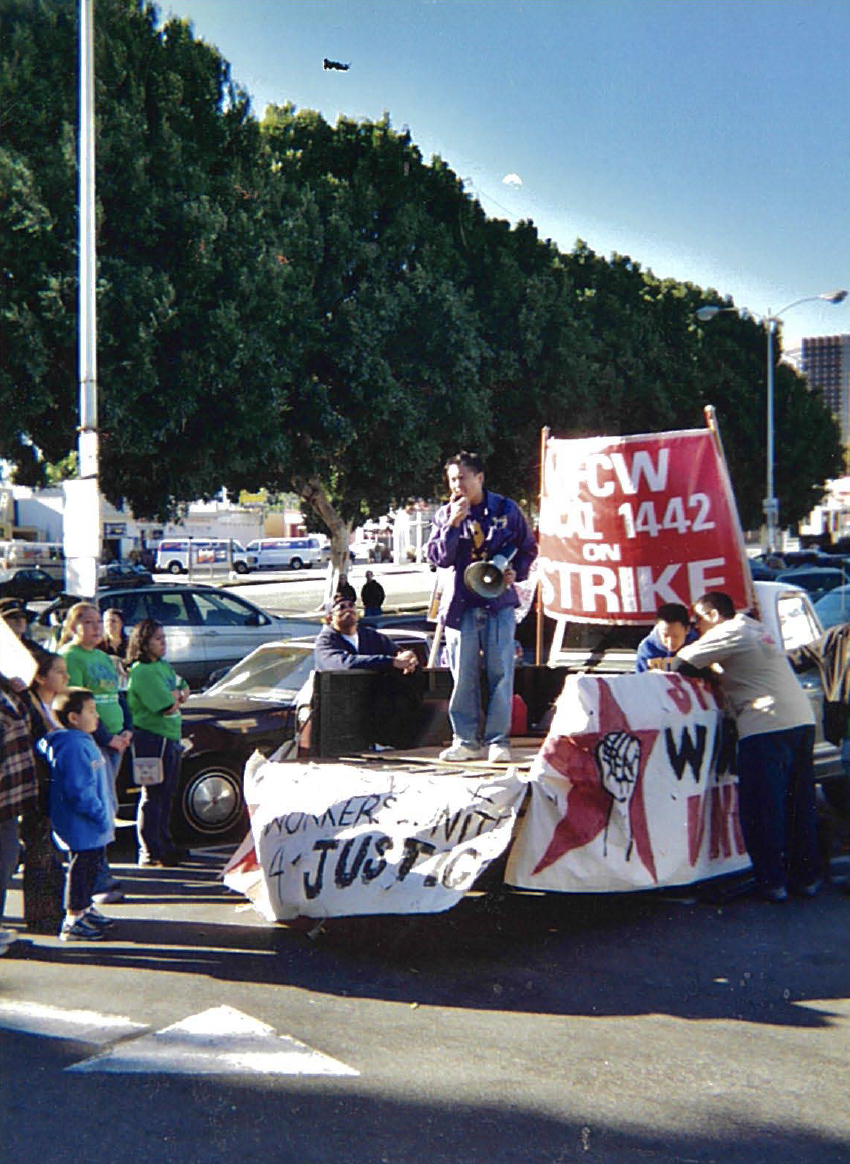
How did your New American story play a role in your interest in the field?
My mother was a registered nurse for many years before she retired. She worked for Kaiser Permanente, a large hospital chain in California and was a member of the nurses’ union. It was not until I was an organizer that I started to see the through-line between the immigrant workers I was organizing and my mother’s experiences. To escape poverty in the Philippines, my mother, like countless other women, pursued a nursing degree so that she could come to the US. During the American colonization of the Philippines, there was a nursing shortage in the United States. The US established nursing schools, which served as a labor pipeline for Filipinx nurses. The pipeline exists to this day as part of that colonial legacy. As a result, countless Filipino families here are largely dependent upon the work and income of Filipinas in the healthcare profession. They are the vanguard of our community. I was fortunate that because my mother worked in a union hospital, my siblings and I grew up with free family healthcare. But as long as the healthcare industry remains largely unorganized, it has direct ramifications on the community that I come from. I organized hospitals many years ago that were literally minutes from a Kaiser. But even though the nonunion healthcare workers performed the same jobs as the union Kaiser workers, they paid over $300 a month for family health insurance and made a lot less. And this was in 2003. When I put these connections together, it cemented my commitment to the labor movement.
When did you know you wanted to dedicate your career to supporting unions?
It was in 2004 when I realized that organizing a union and standing up for yourself at work could reverberate to other parts of your life. My union mentors had always emphasized the importance of fighting for the “bread and roses;” building a labor movement that goes beyond subsistence issues and strives to enrich the lives of workers. I didn’t really understand it until I led a union campaign to organize a hospital in the South Bay that lasted months, maybe even close to a year. I met a Filipina nursing assistant who had been working there for over 20 years. All of her coworkers respected her and considered her their leader. On my first house visit with her, she showed me a dark bruise on her shoulder; her husband had been beating her for years. I was 22 at the time, and I didn’t know what to do or say. But I recruited her to help lead the organizing effort inside the hospital and, at first, she was reluctant. A few weeks later, however, her supervisor attempted a retaliatory demotion. Outraged, the nursing assistant expressed her anger to the supervisor, who then recanted. Overnight, she became an ardent organizer and vocal union supporter. We went on house visits together—it was so much easier to get in the door of a worker’s house when you have one of their well-respected coworkers with you. At some point, months later, she told me that for the first time she had confronted her husband, threatening to take her daughter and leave. The abuse stopped. She never won her union contract. Management mounted a grueling anti-union campaign and we lost. But through her fight for workplace democracy, I believe she found personal liberation. I think about her all the time. I don’t know what happened to her, but her story continues to motivate me to do more.
What books were formative to developing your worldview on unions?
Philip Vera Cruz was a Filipino organizer in the United Farm Workers’ union. Most people know Cesar Chavez and Dolores Huerta, but not enough know about the role Filipino farmworkers played in building the union movement in the Central Valley of California. His autobiography helped me feel connected to my work organizing Filipinx healthcare workers. I mentioned the plethora of Filipinx workers in US hospitals earlier was part of the legacy of American colonization. I learned that from Catherine Choy’s book Empire of Care. John Steinbeck’s book In Dubious Battle tells the story of apple pickers trying to unionize, and the brutal physical and psychological methods employers use to instill fear in the workforce. Larry Tye’s book Rising from the Rails: Pullman Porters and the Making of the Black Middle Class is great and is about A. Philip Randolph and the Brotherhood of Sleeping Car Porters. It was inspiring to learn how this union of Black workers thrived and helped pave the way for the Civil Rights Movement.
You were a labor activist and organizer before going to law school; why did you decide that law school was the best way for you to make an impact?
Organizing is hard work. I have so much respect for organizers and love working with them on cases. The labor movement needs good lawyers. As an organizer, we needed lawyers to help us with contract negotiations, enforcing labor laws, and getting us out of jail when we practiced civil disobedience in support of striking janitors. The labor movement also needs lawyers who can think like organizers. At times during my representation, I believe my dual lens can offer broader knowledge and skills for strategy development.
When you look at worker’s rights across the country, what makes you most optimistic?
Even in the midst of a global pandemic, workers from John Deere to Kaiser Permanente to now Starbucks in Buffalo, which voted to form the company’s first union, are saying enough is enough. With Kaiser, the company wanted to implement a two-tier wage system that would pay starting workers less than their more experienced colleagues. The workers threatened to strike and the company backed down. My firm represented the Writers Guild of America in Los Angeles, whose members made the courageous and collective decision to fire all of their agents to change a broken system. That’s amazing. I heard one of the 3,000 graduate students on strike at Columbia University on the radio recently talk about what is at stake. Those students are going to take that experience with them, and I have to believe they’ll continue to fight the good fight beyond what happens at the university.
What advice do you have for graduate school students who are interested in organizing a union?
The union is only as strong as its members. Organizing a union is about relationships. Who can convince who to sign a petition, march on the boss, vote for the union, or go out on strike. Build relationships with your colleagues.
And, finally, what advice do you have for young people going into the worker’s rights movement or who are thinking about it as a career?
Go for it. You’ll never feel ashamed of being able to say that the people who pay your salary are the workers. You can only feel proud. Cesar Chavez was not born a leader. Someone knocked on his door and organized him. That organizer’s name was Fred Ross. He said “a good organizer is a social arsonist who goes around setting people on fire.” What career could be better than one devoted to sparking hundreds of thousands of flames that can create change? ∎
Keep Exploring
-
 Read more: Q&A with MD/PhD Student Silvia Huerta Lopez
Read more: Q&A with MD/PhD Student Silvia Huerta LopezQ&A with MD/PhD Student Silvia Huerta Lopez
-
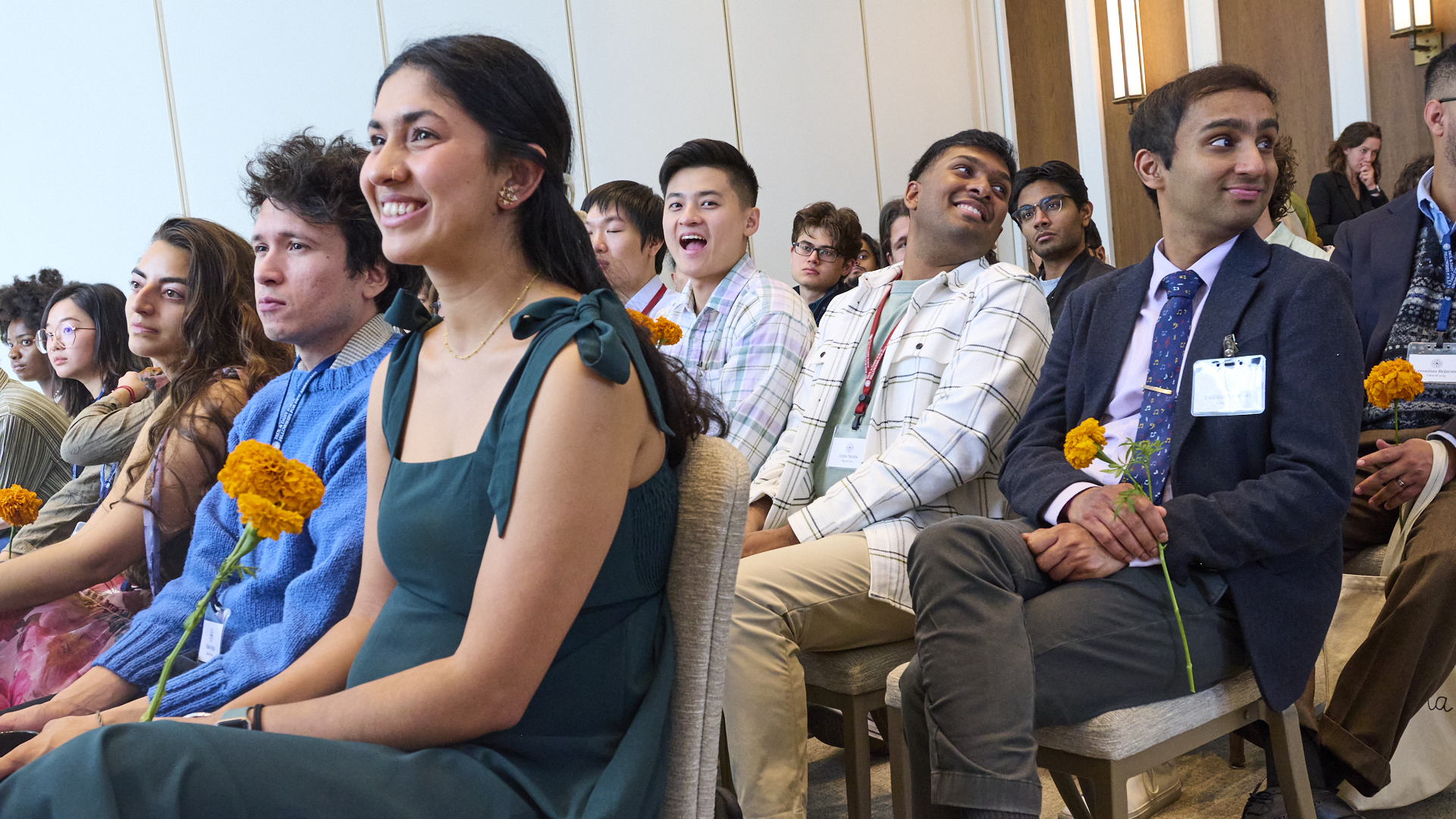 Read more: PD Soros Eligibility Guide for PhD Applicants
Read more: PD Soros Eligibility Guide for PhD Applicants- Applicant Information
PD Soros Eligibility Guide for PhD Applicants
-
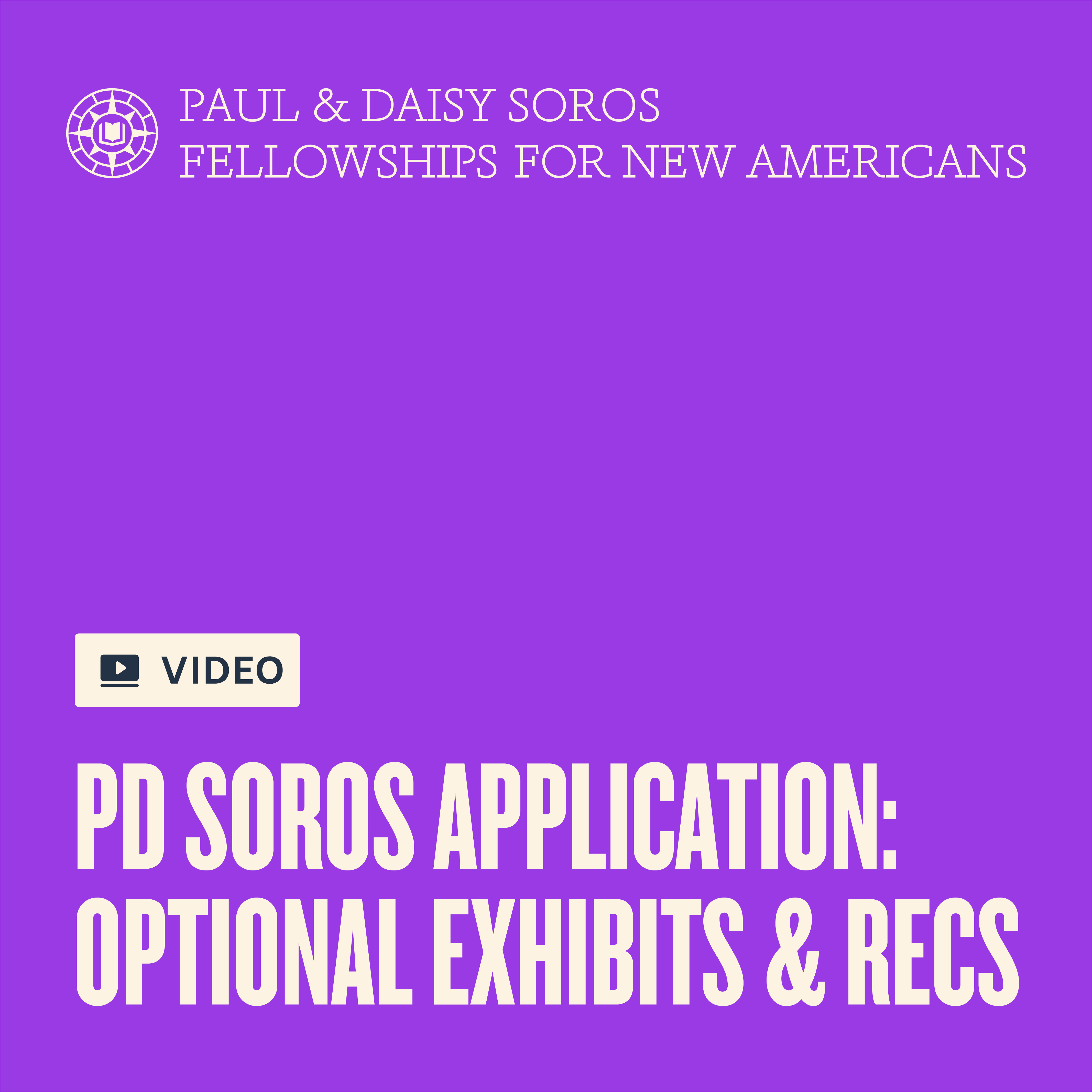 Read more: Watch: Optional Exhibits & Recommendations
Read more: Watch: Optional Exhibits & Recommendations- 2025 Information Sessions
Watch: Optional Exhibits & Recommendations
-
 Read more: Watch: Essay Writing information session
Read more: Watch: Essay Writing information session- 2025 Information Sessions
Watch: Essay Writing information session
